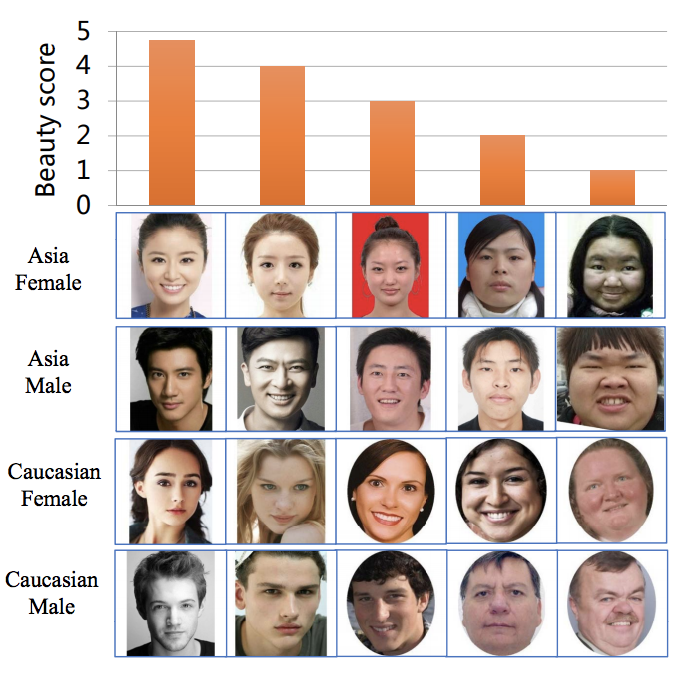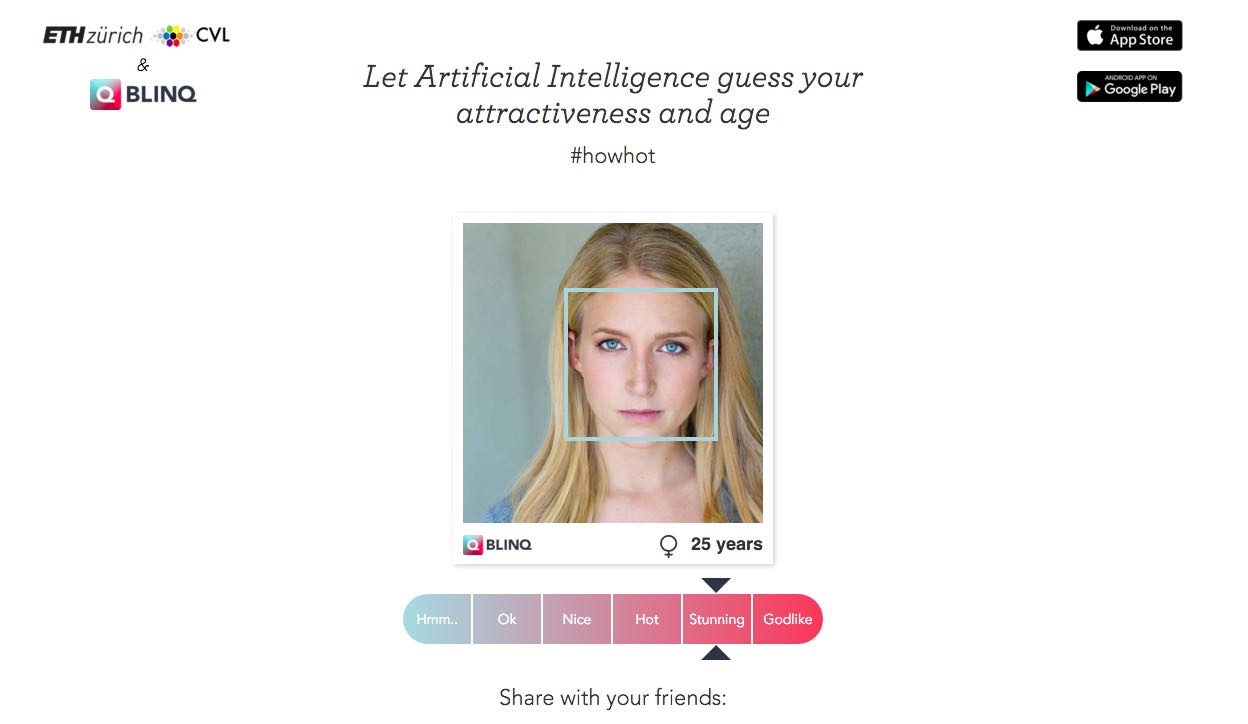How Attractive am I Artificial Intelligence
Artificial intelligence assesses attractiveness based on facial symmetry, skin clarity, and other factors. It provides accurate evaluations.
Attractiveness has always been a subjective concept, with different individuals having varying preferences and opinions. However, with the advancements in technology, artificial intelligence (AI) has now been programmed to determine attractiveness scientifically.
By analyzing facial features such as symmetry, skin tone, and even smiling expressions, AI algorithms can provide an objective assessment of how physically attractive a person is perceived to be.
This innovative technology has sparked interest and curiosity among individuals curious to see how they are rated by artificial intelligence. Let's explore how AI determines attractiveness and the implications it has in our society.

Credit: towardsdatascience.com
The Role Of Artificial Intelligence In Attractiveness
Artificial Intelligence plays a crucial role in assessing attractiveness by analyzing facial symmetry, skin quality, and features. By using AI technology, individuals can gain insights into their overall attractiveness and receive personalized recommendations to enhance their appearance.
This innovative approach enables a deeper understanding of attractiveness and provides valuable insights into self-improvement.
Facial Recognition Technology
Body Analysis
Voice Analysis
Artificial Intelligence plays a pivotal role in assessing and enhancing attractiveness through advanced technologies.
Facial Recognition Technology
Facial recognition technology utilizes algorithms to analyze facial features to determine attractiveness.
Body Analysis
Body analysis through AI involves examining body proportions and symmetry to evaluate attractiveness.
Voice Analysis
Voice analysis with AI assesses tone, pitch, and other vocal characteristics to determine their impact on attractiveness.
How Artificial Intelligence Measures Attractiveness
Artificial Intelligence utilizes various factors to measure attractiveness, ranging from statistical analysis to facial symmetry, body proportions, and voice pitch.
Statistical Analysis
AI analyzes large datasets to determine common characteristics associated with attractiveness.
Facial Symmetry
Facial symmetry plays a crucial role in determining attractiveness as it signals genetic health and developmental stability.
Body Proportions
Body proportions are examined by AI to assess the ideal ratio between different body parts for enhanced attractiveness.
Voice Pitch
Voice pitch is a key element in attractiveness assessment, with AI analyzing pitch variations for their impact.
Ethical Concerns And Controversies
The development of Artificial Intelligence (AI) has brought about numerous technological advancements, revolutionizing various aspects of our lives. One domain in which AI has made significant strides is in determining attractiveness.
AI algorithms can now analyze facial features, body proportions, and other physical characteristics to provide an objective assessment of an individual's attractiveness. However, the integration of AI in this domain gives rise to ethical concerns and controversies that must be addressed.
Objectification
The use of AI to determine attractiveness raises concerns about objectification. By reducing individuals to numbers and metrics, this technology can contribute to the dehumanization of individuals, focusing solely on their physical appearance rather than their unique qualities and abilities.
It perpetuates the notion that beauty is the most valuable characteristic a person can possess, leading to potential harm to individuals' self-esteem and body image.
Bias And Discrimination
Another ethical concern associated with AI's determination of attractiveness lies in the potential for bias and discrimination. AI algorithms are trained on data sets that may not accurately represent the diverse spectrum of beauty standards and preferences.
Consequently, these algorithms may reflect societal biases and perpetuate discriminatory practices. For example, certain ethnicities or body types might be unfairly penalized or excluded from the definition of attractiveness, reinforcing harmful beauty standards and marginalizing individuals.
Mental Health Effects
The use of AI to determine attractiveness can also have significant mental health effects on individuals. Constantly seeking validation and reassurance from an AI algorithm might exacerbate feelings of inadequacy, anxiety, and self-doubt in individuals.
These negative mental health consequences are particularly concerning, as young people, who are already vulnerable to societal pressures related to appearance, might be more susceptible to the damaging effects of AI-based attractiveness assessments.
As society continues to embrace AI technologies, particularly in the domain of attractiveness determination, it is essential to address these ethical concerns and controversies. Stricter regulations should be implemented to ensure that AI algorithms are developed and trained using diverse and inclusive datasets.
Furthermore, public awareness campaigns should be launched to educate individuals about the potential dangers of relying solely on AI for determining attractiveness, encouraging a healthier and more holistic perspective on beauty.
Credit: www.businessinsider.com

Credit: fossbytes.com
Frequently Asked Questions Of How Attractive Am I Artificial Intelligence
How Does Artificial Intelligence Assess Attractiveness?
Artificial Intelligence uses algorithms to analyze facial symmetry, features, and expressions to determine attractiveness.
Can Artificial Intelligence Accurately Predict Attractiveness?
Yes, AI can predict attractiveness based on data analysis and facial recognition technology with a high level of accuracy.
What Factors Does Ai Consider When Evaluating Attractiveness?
AI considers facial proportions, skin condition, grooming, and emotional expressions to evaluate attractiveness.
Is Attractiveness Subjective For Artificial Intelligence?
AI's assessment of attractiveness is based on mathematical patterns but can vary based on cultural and individual preferences.
How Can Ai's Assessment Of Attractiveness Be Used In Real Life?
AI's assessment can be used in marketing, personalized recommendations, and cosmetic surgery consultations.
Conclusion
Artificial intelligence has undoubtedly revolutionized the way we assess attractiveness. With its advanced algorithms, it provides an objective and accurate analysis of our physical appeal. Whether it's through facial recognition or body proportion measurements, AI offers a glimpse into how attractive we are.
However, it's important to remember that beauty extends far beyond appearance, as personality and confidence play crucial roles.
As AI continues to evolve, it will be fascinating to witness its further impact on our perception of attractiveness. Embrace the power of AI while maintaining balance in appreciating beauty in all its forms.






